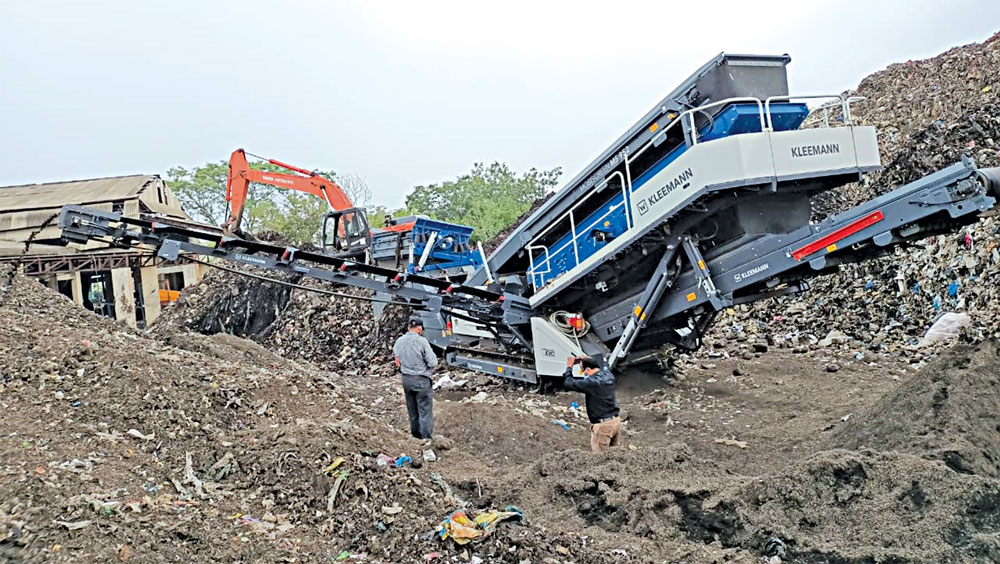Bioremediation of Legacy Waste (Biomining)
- Home
- Bioremediation of Legacy Waste (Biomining)

Bioremediation Of Legacy Waste (Biomining)
“Biomining is the scientific process of excavation, treatment, segregation and gainful utilisation of aged municipal solid waste lying in dumpsites typically referred to as legacy waste.”
Simply put, it is a process of treating garbage or waste with bio-organisms or natural elements like air and sunlight. Over time, the biodegradable component of the waste gets decomposed through the natural process, and the remaining part i.e. non-biodegradable material is then dealt separately. It extracts metals of economic interest from rock ores or mine waste.
Bio-mining comprises four steps:
- The excavation of legacy waste,
- Stabilising the waste through bioremediation,
- Segregation of excavated waste (sorting into organic fines, bricks, stones, plastics, metals, clothes and rags),
- Sustainable management of the same through recycling, co-processing, and its safe disposal.
What are the benefits of Biomining?
Biomining has many advantages including zero emissions and leaving near-zero residues, helping in reducing soil pollution, soil contamination and groundwater.
It reduces greenhouse gas emissions and no energy is required for the process. Further, the reclaimed land can be used for other development purposes.
Landfills are among the major sources of disease and clearing them can help in decreasing vector-borne diseases. US Public Health lists 22 diseases that develop due to improper handling of solid waste.
Biomining is an eco-friendly method that allows us to recycle resources by extracting useful components from waste such as metal, compost in fertiliser etc.
Book An Appointment
Let’s Work Together To End Waste.
Send us a request and we’ll get back to you as soon as possible.

